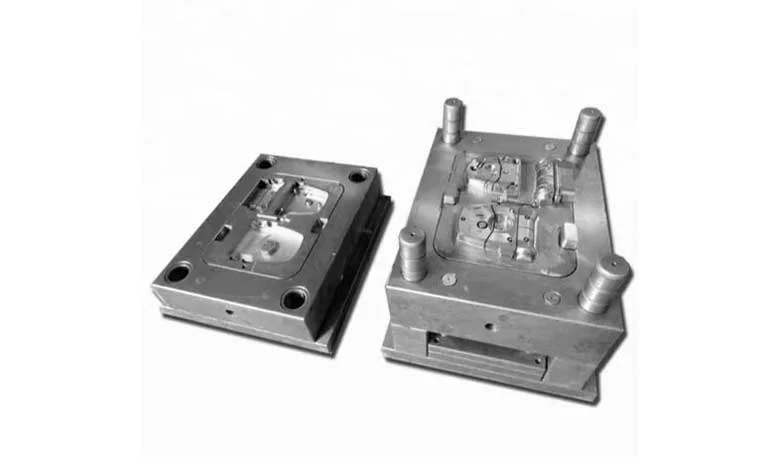Time to read: 6 min

Why Choose Injection Molding for the Aerospace Industry?
Design Flexibility: Injection molding offers a high degree of design flexibility, with molds being quickly and inexpensively manufactured, especially through rapid prototyping methods like 3D printing.
Material Selection: Injection molding is compatible with a wide range of materials, from standard thermoplastics to reinforced composites.
Precision and Tolerance: It boasts competitive manufacturing tolerances up to ±0.001 inches, producing parts that require minimal finishing.
High Strength: Capable of withstanding high forces such as in-flight thrust, drag, and turbulence.
Lightweight: A key concern in aerospace engineering is weight reduction, and injection-molded plastics are incredibly lightweight with strength comparable to metals.
Consistent Quality: The process offers remarkably standardized production due to the high repeatability of injection molding, ensuring consistent part quality over 100,000+ cycles.
Custom Finishing: Injection-molded products offer a variety of finishing options, from matte to glossy, with achievable surface roughness as low as 0.012 μm and textured surfaces.
Low Cost: Injection molding is a cost-effective manufacturing method with relatively low mold costs and setup investment compared to die casting and machining.
Materials for Aerospace Injection Molding
Polypropylene (PP): Known for toughness, chemical, and thermal resistance.
High-Density Polyethylene (HDPE): Offers low-temperature toughness, flexibility, and weatherproof properties.
Acrylonitrile Butadiene Styrene (ABS): Provides tensile strength, hardness, and chemical resistance.
High Impact Polystyrene (HIPS): Known for dimensional stability, impact strength, and thermal resistance.
Polyether Ether Ketone (PEEK): Often reinforced with glass or carbon fiber for enhanced mechanical, thermal, and chemical resistance.
Thermoplastic Polyurethane (TPU) / Thermoplastic Vulcanizate (TPV): Features high ductility, durability, and abrasion resistance.
Injection Molding Processes for the Aerospace Industry
Standard Injection Molding: Involves a mold with a cavity that matches the part‘s intended geometry, with allowances for factors like thermal shrinkage.
Overmolding: A special process that combines two plastic parts to create a single component, useful when a part functions better with a combination of materials.
Insert Molding: Combines a metallic insert with plastic injection molding, embedding the insert within the plastic component for added strength.
Micro Molding: The injection molding of very small components, with high accuracy due to precision controls and advanced technology.
Common Injection Molded Aerospace Products
Battery Housings: Plastic components that hold electric cells, requiring strength and chemical resistance.
Circuit Enclosures: Must protect circuitry from in-flight vibrations and serve as good electric insulators.
Radomes: Enclosures that protect signal transmission equipment, requiring materials with ideal properties like fluoropolymers.
Pilot Tubes (Pitot Tubes): Sensing devices that require a smooth surface and material resistance to cold temperatures.
Turbine Blades: Used in smaller aircraft like drones to reduce weight, requiring strength and proper surface finish.
Chassis Parts: Common in drones, favored for their strength, fine surface finish, and cost-effective mass production.
Bezels: Must be airtight with high manufacturing tolerance for sealing aircraft from air leakage, often made from lightweight plastics.
Conclusion
The article concludes that aerospace injection molding is an invaluable manufacturing tool in the aerospace industry, offering benefits such as design flexibility, material variety, lightweight components, and significant cost savings. Unofactory offers high-quality injection molding services, including overmolding and insert molding, supported by mold flow analysis, suitable for prototyping and mass production. For more information on how Unofactory can assist with manufacturing needs, feel free to contact them.




